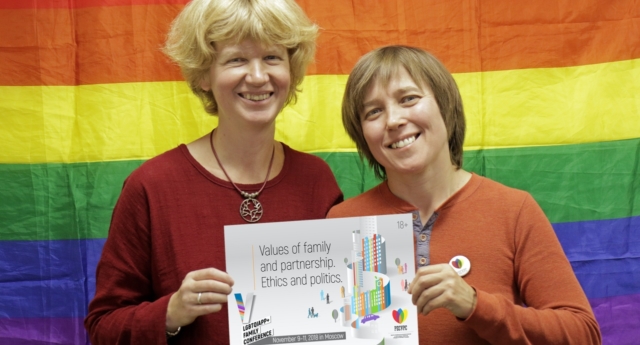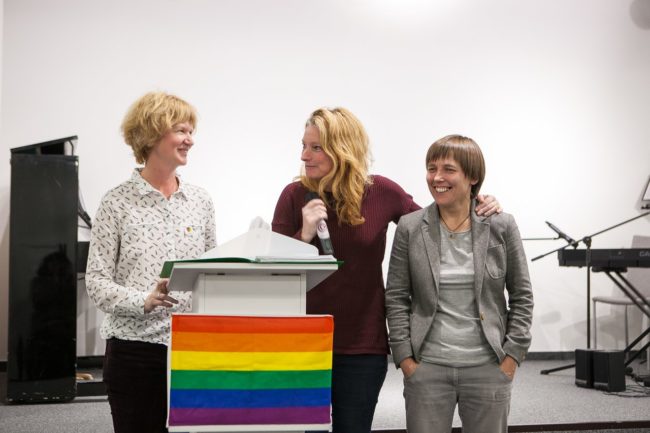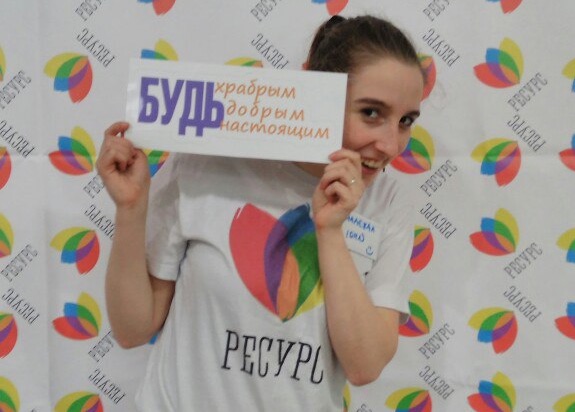LGBT Activists Attacked with ‘Acid Substance’ in Russia

LGBT+ activists in Russia involved in organising a conference about same-sex families were attacked for the second year in a row.
The fifth annual LGBTQIAPP+ Family Conference was due to take place on November 9-11, despite funding issues that forced organisers to raise money via crowdfunding to guarantee safety at the venue.
Conference organisers managed to secure a location for the event for free, but on the afternoon of November 9 the venue managers informed the organisers the conference had to be cancelled because they had received threats that made it difficult to guarantee participants’ safety.The LGBT+ activists cleared the space and headed to a nearby shop. As they came out of the shop, they were attacked by an unidentified assailant.
Attack on LGBT+ activists similar to that of the previous year
Nadeshda Aronchik, fundraiser and co-organiser of the conference, tells PinkNews that one person ran towards the volunteers and sprayed them with an “acid substance.” The substance hit two people in the eyes, but also affected other people in the group who were also sprayed.
The two LGBT+ activists that were injured received hospital treatment and are currently recuperating well, Aronchik says. They are being kept under constant monitoring as the substance may lead to longterm consequences.

While the substance is yet to be identified by police, Aronchik is sure it was not pepper-spray, as it has been reported elsewhere.
“They were sprayed with the same acid substance as me and my colleagues last year,” she says.
Last year, a group of four men attacked conference guests, organisers and volunteers with an unknown substance, forcing the conference’s third day to be cancelled.
A case into the assault—which was considered to be homophobic, a virtually unprecedented step in Russia—was only opened in August, but the attackers were apprehended and are awaiting trial.
“They won’t win because we don’t give up. We know we are in the right here, so we won’t stop fighting.”
— Nadeshda Aronchik
Aronchik believes the person responsible for this year’s attack is related to the far-right group who orchestrated the one last year. Her suspicion is reinforced by messages the conference organisers received after the November 9 attack.
“After the attack, the organisers received threats through calls and SMS saying they should ‘die’ and ‘burn in hell’ and saying, ‘How did you like our present? Last year was only the beginning,’” Aronchik says, adding that they reported the threats to the police.
Authorities’ attitudes to LGBT+ activists were ‘as friendly as Russian police can be’
Aronchik describes the police’s attitude to the LGBT+ activists as “ambiguous.”
“They were as friendly as Russian police can be,” she says. She accompanied the LGBT+ activists targeted in the attack to the police, as she had experience doing so from the previous experience.
Aronchik recalls: “The policeman was semi-friendly—he had some homophobic and misogynistic statements but not as homophobic as I’ve experienced before, so it was kind of fine.
“He asked what happened and every time he mentioned something homophobic I told him he was out of line and should mind his job rather than commenting on what the guys are saying. So all in all I’d say, for the Russian police, it was OK.”
Rights group Human Rights Watch (HRW) condemned the attack in a statement on Tuesday.
“It is totally unacceptable for activists to face threats and attacks simply for holding a conference,” said Graeme Reid, HRW director of the LGBT rights program. “The Russian authorities need to do more to ensure that these threats and attacks stop.”
Conference organisers are not giving up
The LGBTQIAPP+ Family Conference aims to bring together activists, psychologists, therapists, educators and health professionals who would not otherwise have the possibility to receive information as to how to best support the LGBT+ community.
Same-sex parenting is not banned in Russia, but LGBT+ parents face discrimination and the threat of a 2013 law banning the spread of “propaganda for non-traditional sexual relations” to minors. If they look for support on parenting or in their relationship, they have “nowhere to turn,” the organisers said.

This year’s conference could not go ahead as planned. “We managed to provide video seminars on Saturday [November 10] and tried to provide workshops on Sunday. But unfortunately the address got out again and we received direct threats regarding further attacks. Thus we decided to cancel the afternoon sessions for the security of our participants and volunteers,” Aronchik says.
“It was devastating that the work of six months just vanished,” she continued. “But I decided not to give up und we are already planning to make one day of the conference take place in December.”
Aronchik says she and the other conference organisers have vowed to continue doing their work in spite of the threats. “They won’t win because we don’t give up. We know we are in the right here, so we won’t stop fighting,” she says.
The organisers’ biggest issue at the moment is funding, as they can’t afford to rent a venue and they also need to provide security. “We are currently looking for donors or any other help in Moscow and outside,” Aronchik says,